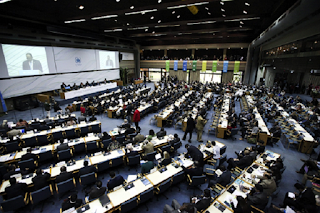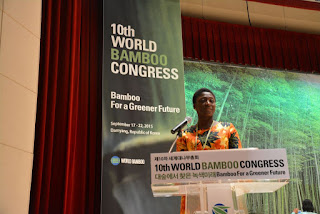As the
UN’s Sustainable Development Summit closed in New York with a bold new global
sustainability roadmap, world leaders now need to focus on fulfilling that
vision.
The
task ahead is clear, but not easy – world leaders must go home and make the
necessary administrative, legal, regulatory and fiscal decisions, and spend the
next 15 years implementing and enforcing this agenda.
Unlike
the Millennium Development Goals that were mainly aimed at developing
countries, for the SDGs, all goals have to be achieved in all countries.
The Agenda 2030, which contains the
17 SDGs, agreed upon by countries, with the participation of other
actors in an unprecedented democratic process, necessitate important
transformations. Leida Rijnhout, Director of Global Policies and Sustainability
at the European Environmental Bureau, stated that the new development goals
present an opportunity to transform the world’s development agenda.
“The Sustainable Development Goals should give some much needed
impetus for a paradigm shift to a new global economic and political system
based on sustainability, human rights and equality,” states Leida.
For this
to happen there’s need for a clear political and moral will to implement the
SDGs.
“Governments have to use their political and moral power to put
the right policies in place and mobilise all means of implementation to enable
the shift away from business-as-usual,” states Leida.
Political will
In his
speech to the UN General Assembly, Pope Francis stated that “solemn commitments
are not enough, even though they are a necessary step toward solutions.” He
further reiterated the importance of political and moral will in the
achievement of the SDGs.
“Our
world demands of all government leaders a will which is effective, practical
and constant, concrete steps and immediate measures for preserving and
improving the natural environment and thus putting an end as quickly as
possible to the phenomenon of social and economic exclusion.”
UN
Secretary General Ban Ki-Moon cautioned that the true test of commitment
to these goals “will be implementation. We need action from everyone,
everywhere”. He added that the goals “are a to-do list for people and planet,
and a blueprint for success.”
“To
achieve these new global goals, we will need your high-level political
commitment. We will need a renewed global partnership,” he said.
WWF International President Yolanda Kakabadse urged world
leaders to sustain this political courage at home and make the right choices,
committing to a total economic, social and environmental overhaul.
“Today’s
celebration must translate into delivery and quickly. For these goals to become
a reality decision-makers must demonstrate their intention to implement the
2030 Agenda and its Sustainable Development Goals is real and make their
efforts transparent through careful follow-up and review,” urged Kakabadse.
Countries
need to figure out how they’re going to contribute to achieving these goals and
set benchmarks and indicators so they can report on their efforts. They will
need to strengthen their domestic and external mobilization of resources to
implement this development agenda.
Addressing the UN General Assembly, Kenyan President Uhuru
Kenyatta stated that the goals are ambitious and need an equally robust
development mechanism.
“Without resources, the goals may never be realised; effective
mobilization of resources in the context of global partnership will be
critical,” he said before adding “new ideas and courage are necessary in
achieving the Sustainable Development Goals (SDGs).
Integrating
Gender in SDGs
Winnie
Byanyima, Executive Director of Oxfam International said that the new
Sustainable Development Goals are ambitious on paper but they could be historic
in their impact.
“SDGs
seek to go beyond band-aid solutions by setting out to eradicate – not just
reduce – extreme poverty and hunger in every country,” she said.
Winnie
further warned that the successes of the SDGs requires the participation
of the most vulnerable and marginalized people so they can hold their
governments to account and claim their rights. Women must be central to
realizing these goals, while at the same time the concentrated power of vested
interests must be challenged and those interests held more accountable by
governments and citizens.
Alicia Bárcena, Executive Secretary of the Economic Commission
for Latin America and the Caribbean (ECLAC) echoed the integration of women and
other vulnerable groups in implementing the SDGs.
“Sustainable
development must include gender equality comprehensively, otherwise it is
neither development, nor sustainable. The time for equality has come,” stated
Alicia.
The
2030 Agenda should be centered on participatory and transparent processes that
turn the top-down logic on its head and move from the national arena to a
regional sphere, and from regional to global.
Every country is required to develop national indicators and
programmes of implementation through individual development plans. In March,
countries will crucially agree a set of indicators that will allow the UN to
report annually on global progress in coming years.
Sustainable development demands significant collective action.
Though all 193 Member States of the United Nations reached agreement on the
SDGs, their success relies heavily on action and collaboration by all actors.
Just as Winnie Byanyima of Oxfam correctly puts it, “Our political leaders have
set the goals. There is a collective responsibility now to achieve them.”
























